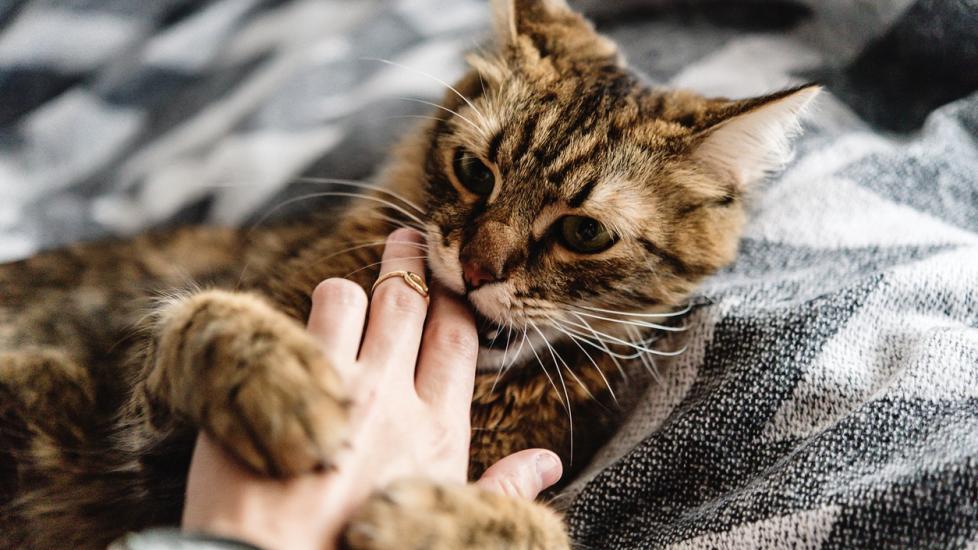 Ah, the mysterious and often perplexing behavior of our feline friends! It’s a common occurrence that many cat owners experience: seemingly out of nowhere, your beloved kitty pounces on you with playful yet sometimes painful intensity. Why does this happen? Understanding the reasons behind such unprompted attacks can help us better care for and connect with our cats. Here are some insights into this intriguing behavior:
Ah, the mysterious and often perplexing behavior of our feline friends! It’s a common occurrence that many cat owners experience: seemingly out of nowhere, your beloved kitty pounces on you with playful yet sometimes painful intensity. Why does this happen? Understanding the reasons behind such unprompted attacks can help us better care for and connect with our cats. Here are some insights into this intriguing behavior:
Play Behavior Gone Awry: Cats have an instinct to chase, pounce, and ambush prey. If not directed towards toys or other pets, these instincts might be redirected towards humans. Sometimes, play becomes too rough due to overstimulation or lack of proper outlets. Providing plenty of interactive playtime using appropriate toys can help channel their energy appropriately.
Territorial Marking: Your home is your cat’s territory, and they may feel the need to mark it as theirs – including you. By swatting at you or biting, they could be asserting dominance or establishing social hierarchies within the household. Regularly grooming them (which includes scratching posts and licking) can reduce the urge to do so.
Stress and Anxiety: Changes in routine, new additions to the family (human or animal), or loud noises can cause stress, leading to unpredictable behaviors like sudden attacks. Creating a stable environment where your cat feels secure can alleviate anxiety-driven actions.
Hormonal Imbalance: In female cats especially, hormonal fluctuations associated with heat cycles can lead to increased aggression or hyperactivity. Spaying your pet early can prevent these issues from occurring.
Lack of Socialization: Kittens who haven’t been adequately socialized with people may exhibit fear or aggression when handled by unfamiliar hands. Positive reinforcement training and gentle handling can correct this behavior over time.
Pain or Discomfort: Just like humans, cats can suffer from pain without showing clear signs. If your cat has arthritis, dental problems, or any underlying health condition, discomfort could manifest as irritability or aggressive tendencies. Regular check-ups with the vet and prompt treatment can make all the difference.
To address these situations, here are some strategies to consider:
- Structured Play Sessions: Schedule regular playtimes to expend your cat’s excess energy and provide mental stimulation. Use wand toys to mimic prey and encourage natural hunting behavior.
- Positive Reinforcement: Reward calm and affectionate interactions with treats or praise. This helps reinforce good manners and discourage unwanted behavior.
- Environment Enrichment: Provide plenty of vertical space (like shelves and perches), hiding spots, and scratching posts to satisfy your cat’s natural needs for exploration and security.
- Health Check-Ups: Keep up with regular veterinary appointments to ensure your cat’s overall well-being and detect potential health issues before they escalate.
- Consistent Routine: Cats thrive on predictability. Maintain consistent feeding times, play sessions, and bedtime routines to create a sense of stability.
- Safety First: Teach children how to interact gently with your cat and establish rules about respectful handling. Always supervise interactions between young kids and pets.
By understanding why your cat may attack unexpectedly and implementing these measures, you can foster a harmonious relationship built on trust, respect, and mutual joy. Remember, each cat is unique, so patience and observation will go a long way in creating a peaceful coexistence with your purring companion.
